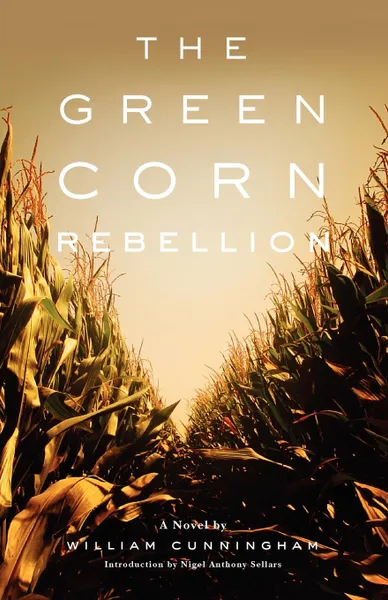The Green Corn Rebellion 12+
Автор: William Cunningham
256 страниц
Категория: Литература на иностранных языках
ISBN: 9780806140575
Язык: Английский
📗 A captivating story from Oklahoma's radical past
These days, rural Oklahoma is the last place anybody would look for leftist revolutionaries, but in 1917 the area exploded into full-blown insurrection. The state's tenant farmers, many of whom were Socialist Party members, viewed the Great War in Europe as a conflict that benefited only the rich. When the federal government enacted a draft, an uprising in eastern Oklahoma saw local townspeople skirmishing with rebellious farmers, including whites, blacks, and American Indians. More than 250 men were arrested - some sentenced for up to ten years' imprisonment.
This is the backdrop of William Cunningham's powerful novel The Green Corn Rebellion. First published in 1935, it tells the story of Jim Tetley, who wants simply to be a good farmer - if the banks will only let him. As Jim copes with poverty, family rivalries, and community tensions, he must also weigh the need to respond to the call for armed rebellion.
Although the insurrection itself succeeded only in undermining the socialist movement and fueling the Red Scare of the 1920s, Cunningham's incendiary writing has been compared to that of Erskine Caldwell. A uniquely American story with roots set deep in Oklahoma soil, The Green Corn Rebellion will attract all readers interested in the state's tumultuous history and in populist causes.
William Cunningham (1901-67) grew up in Watonga, Oklahoma. A journalist, college teacher, and novelist, he was the first director of the Oklahoma Writers Project, part of the WPA Federal Writers Project. Nigel Anthony Sellars is Associate Professor of History at Christopher Newport University, Newport News, Virginia, and author of Oil, Wheat, and Wobblies: The Industrial Workers of the World in Oklahoma.
These days, rural Oklahoma is the last place anybody would look for leftist revolutionaries, but in 1917 the area exploded into full-blown insurrection. The state's tenant farmers, many of whom were Socialist Party members, viewed the Great War in Europe as a conflict that benefited only the rich. When the federal government enacted a draft, an uprising in eastern Oklahoma saw local townspeople skirmishing with rebellious farmers, including whites, blacks, and American Indians. More than 250 men were arrested - some sentenced for up to ten years' imprisonment.
This is the backdrop of William Cunningham's powerful novel The Green Corn Rebellion. First published in 1935, it tells the story of Jim Tetley, who wants simply to be a good farmer - if the banks will only let him. As Jim copes with poverty, family rivalries, and community tensions, he must also weigh the need to respond to the call for armed rebellion.
Although the insurrection itself succeeded only in undermining the socialist movement and fueling the Red Scare of the 1920s, Cunningham's incendiary writing has been compared to that of Erskine Caldwell. A uniquely American story with roots set deep in Oklahoma soil, The Green Corn Rebellion will attract all readers interested in the state's tumultuous history and in populist causes.
William Cunningham (1901-67) grew up in Watonga, Oklahoma. A journalist, college teacher, and novelist, he was the first director of the Oklahoma Writers Project, part of the WPA Federal Writers Project. Nigel Anthony Sellars is Associate Professor of History at Christopher Newport University, Newport News, Virginia, and author of Oil, Wheat, and Wobblies: The Industrial Workers of the World in Oklahoma.
Мнения
